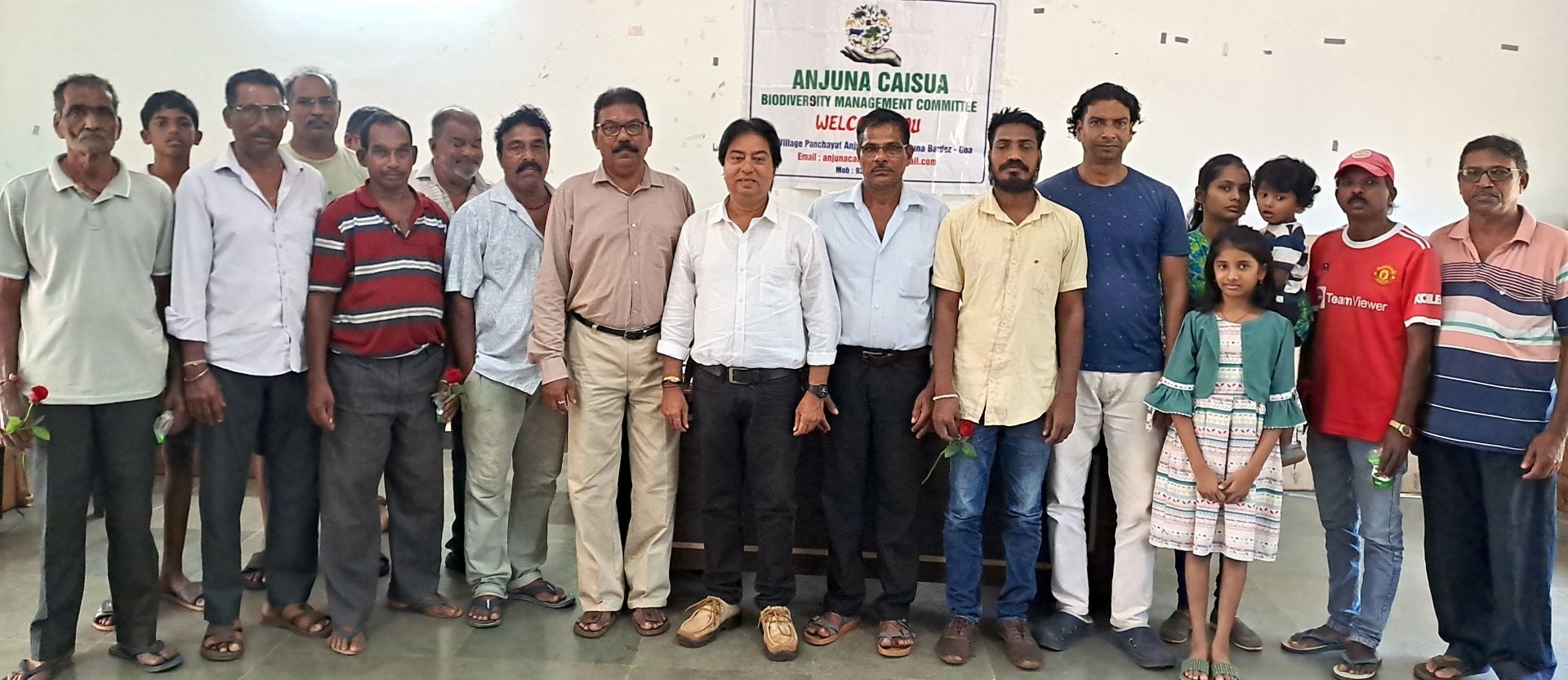
SEEDING SELF-RELIANCE: Anjuna Sarpanch Surendra Govekar, Biodiversity Committee Chairman Ramesh Naik and other members present during the distribution of vegetable seeds to farmers at an event organised by the Anjuna-Caisua Biodiversity Management Committ
Highlighting the growing concerns over pesticide-laden vegetables entering Goa’s markets, Anjuna Sarpanch Surendra Govekar has appealed to farmers and local residents to cultivate vegetables in their own fields and household spaces. He said locally grown produce is not only healthier but also essential to reducing dependence on supplies from Belagavi and neighbouring States.
Govekar was speaking at a farmers’ meet organised by the Anjuna-Caisua Biodiversity Management Committee. Committee Chairman Ramesh Naik and members Sanjay Narvekar, Satyawan Harmalkar and Kritanjali Naik were present.
As part of the programme, vegetable seeds were distributed to residents to encourage home-based cultivation.
The Sarpanch stressed that making Anjuna village “clean and green” requires collective effort. Alongside traditional agriculture, he encouraged farmers to adopt vegetable cultivation to increase local availability and enhance greenery. He suggested optimum use of available spaces such as backyards, unused plots near houses or even vertical gardening systems to grow daily-use vegetables.
Goa’s heavy reliance on vegetables sourced from outside the State is a concern, Govekar added, especially given the widespread use of chemical pesticides in commercial farming.
Homegrown vegetables, even if produced in small quantities for personal consumption, can significantly benefit health and reduce household expenses.
Biodiversity Committee Chairman Ramesh Naik urged locals to make full use of the seeds distributed under the initiative and begin growing vegetables for their own families.
He welcomed participants at the start of the event, while member Satyawan Harmalkar proposed the vote of thanks.
The committee plans to continue promoting sustainable and eco-friendly farming practices to strengthen local food security and encourage greener surroundings in the village.